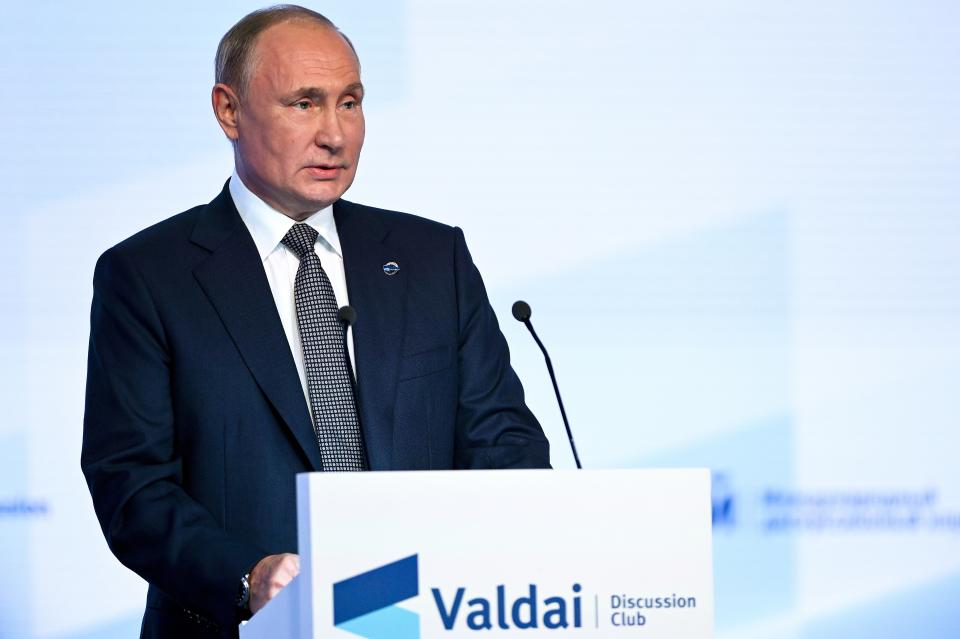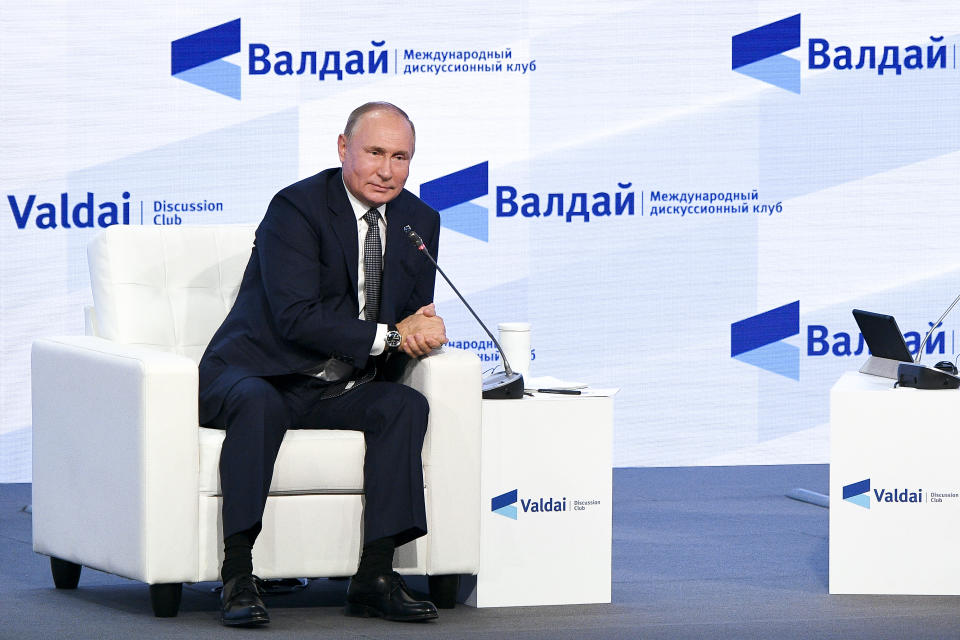Putin says new pipeline could quickly pump more gas to EU
MOSCOW (AP) — Russian President Vladimir Putin said Thursday that Russia could quickly boost natural gas supplies to the European Union once German regulators allow a new pipeline under the Baltic Sea to start operation.
Speaking on a wide range of international and domestic policy issues during a conference of foreign policy experts, Putin argued that Russia already has increased gas supplies to Europe this year and could send more once the Nord Stream 2 pipeline is functioning.
He said one of the two links of the new pipeline already has been filled with gas as part of preparations for its launch, adding that supplies could start “a day after” regulators give their approval.
Putin said the pipeline's second link will be filled with gas by the end of the year, to a total capacity of 55 billion cubic meters.
Earlier Thursday, European Union leaders met to discuss ways to ease the pain of soaring energy bills for consumers. European Commission President Ursula von der Leyen said Wednesday that with the 27-nation bloc importing 90% of its gas — much of it from strategic rival Russia — “this makes us vulnerable.”
Putin blamed soaring European gas prices on past decision by EU officials who focused on the spot gas market and opposed long-term supply contracts preferred by Russia.
Turning to other issues, Putin staunchly defended the law on “foreign agents” that has been used to designate some media, describing it as a tool to ward off foreign meddling in the country's affairs.
Opponents say it has been used to muzzle critical media outlets since the “foreign agent” stigma has strong pejorative connotations.
Responding to a question from Dmitry Muratov, who won the 2021 Nobel Peace Prize earlier this month for his work as editor of the independent Russian newspaper Novaya Gazeta, Putin congratulated him for the first time — but dismissed his criticism of the law.
Putin argued that the law is intended to inform the public about media outlets that receive foreign funds, while allowing them to continue their activities.
While defending the law, Putin promised, however, to look more closely into proposed amendments as Muratov asked.
Asked about his view of relations with Washington following his June summit with U.S. President Joe Biden in Geneva, Putin said Moscow and Washington have conducted consultations on arms control and cybersecurity in line with their agreement.
He said that “we are on the right track,” but noted that there also have been some rollbacks on certain issues he didn't specify.
Asked to comment on the situation of Afghanistan, Putin commended Biden for showing the courage to order American troops' pullback despite domestic criticism, and contested the view that the move had undermined the U.S. global power.
He charged that even though some U.S. allies may have been unnerved by the quick pullout from Afghanistan, in the long run “the country's attractiveness is determined by its economy and military might.”
“The U.S. president made the right decisions to withdraw troops,” Putin said.
The Russian leader added that the international community is getting closer to officially recognizing the Taliban as the new rulers of Afghanistan, saying it should be a concerted move, and noting the need for the Taliban to recognize the interests of all Afghan ethnic groups and respect human rights.
Turning to Ukraine, Putin said Russia is concerned about its growing military ties with the U.S. and its NATO allies.
Russia and Ukraine have remained in a tug-of-war after Moscow's 2014 annexation of Ukrainian Crimean Peninsula and support for a separatist insurgency in eastern Ukraine.

 Yahoo Movies
Yahoo Movies 


